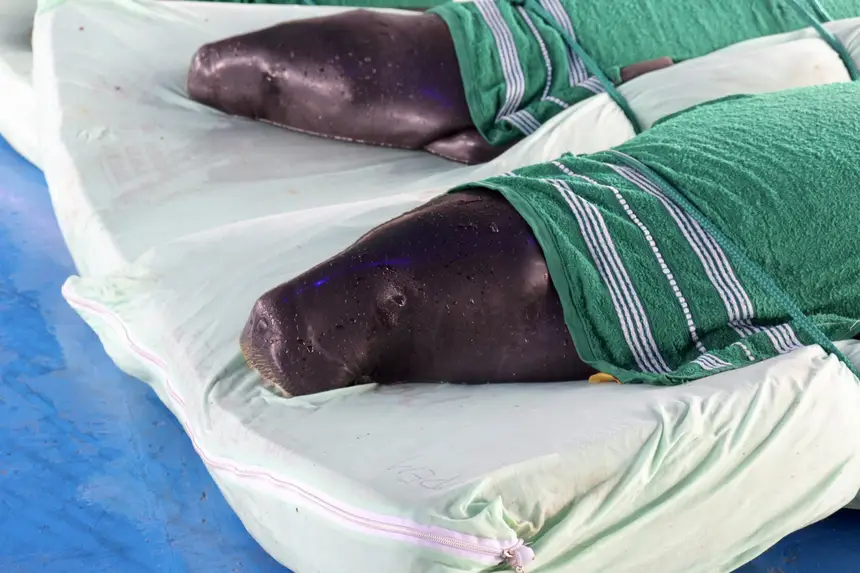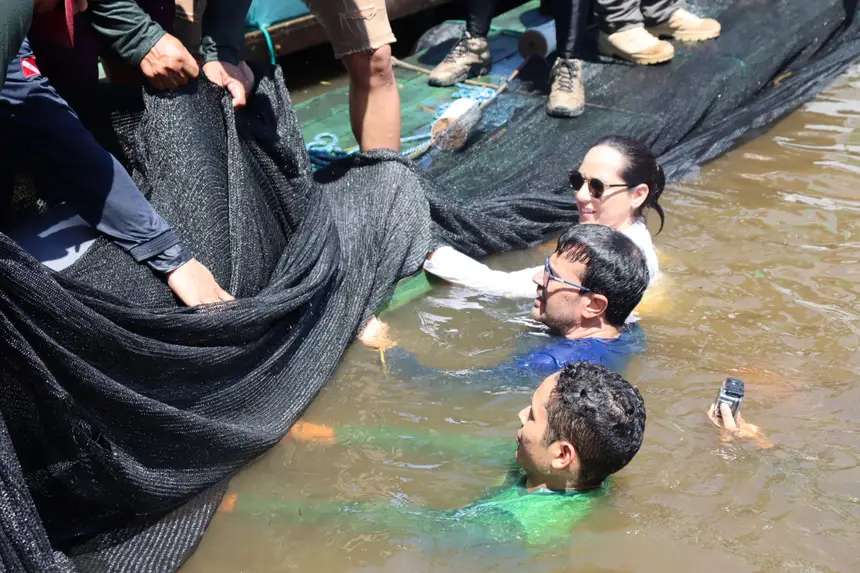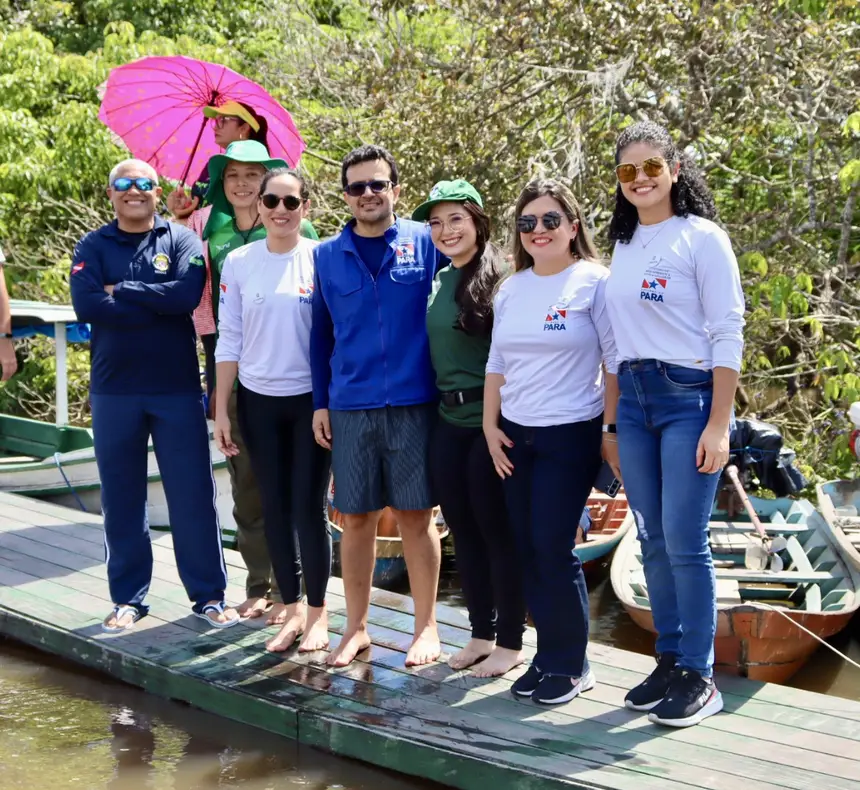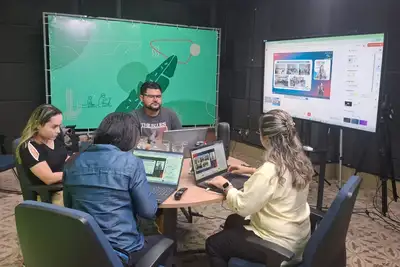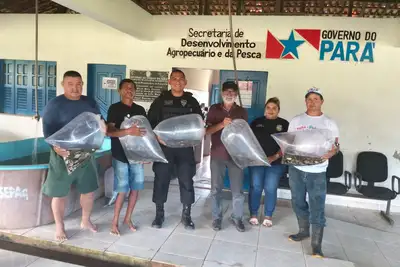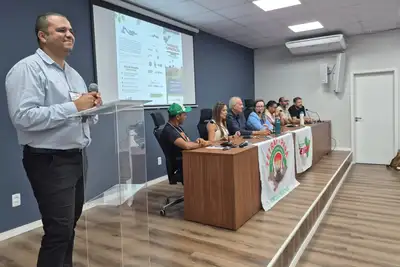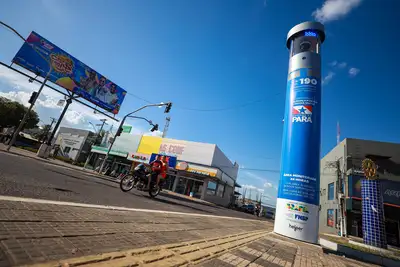Rehabilitated manatees return to nature with support from Semas in western Pará
The release in Igarapé do Costa is part of one of the largest conservation projects for the species in Brazil and involved the participation of public and private institutions.
Six rehabilitated Amazonian manatees were returned to nature this week during an event held in the Igarapé do Costa community in Santarém, a municipality in western Pará. The activity involved the participation of the State Secretariat for the Environment, Climate and Sustainability (Semas), in support of the Amazon Manatee Project, developed by ZooUnama and Grupo Ser Educacional since 2008, considered one of the most relevant conservation initiatives for the species in Brazil.
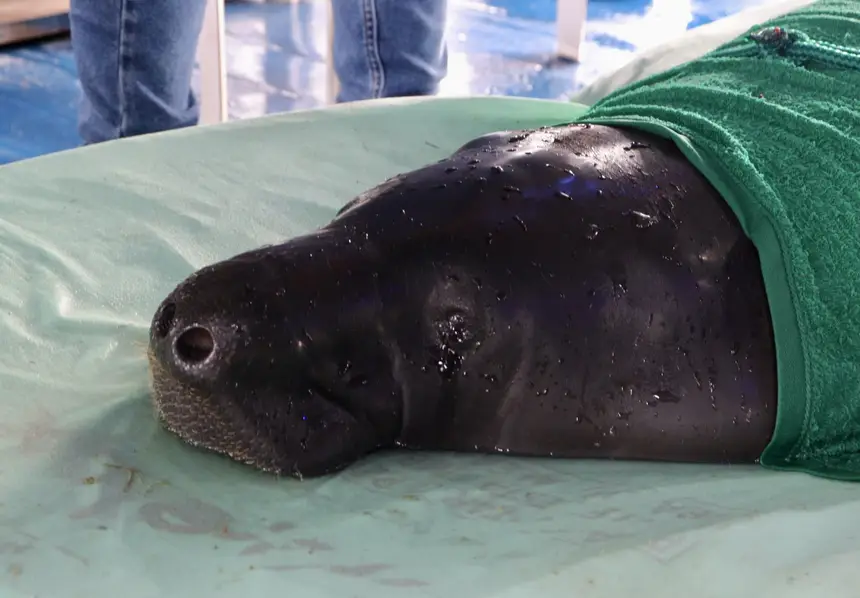
The vessel with the animals departed from the waterfront of Santarém, with representatives from Semas, ZooUnama, ICMBio (Chico Mendes Institute for Biodiversity Conservation), Ibama (Brazilian Institute of Environment and Renewable Natural Resources), institutional partners, and companies active in ESG (Environmental, Social, and Governance), such as Alcoa. Igarapé do Costa was chosen for the release due to its ideal environmental conditions, with an abundance of aquatic vegetation, ensuring food and safety for the animals.
Semas is one of the main coordinators of actions aimed at protecting the manatee in Pará. In the last two years, the Secretariat, together with the Air Security Group (Graesp), linked to Segup (State Secretariat for Public Security and Social Defense), has been strengthening its actions through rescue operations, forwarding animals to rehabilitation centers, and providing direct institutional support to various initiatives, such as the Amazon Manatee Project, executed by ZooUnama.
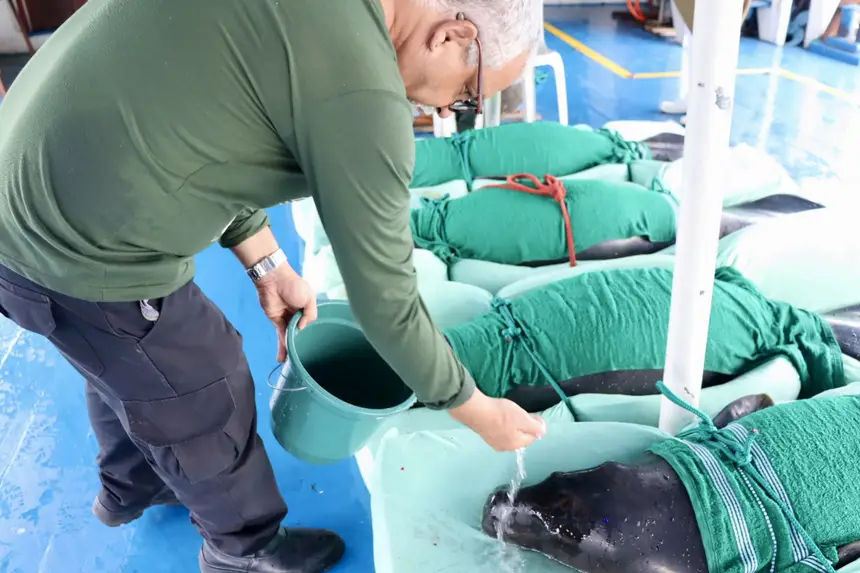
Support - In order to expand the structure and capacity of these centers, Semas also includes and allocates specific conditions to the environmental licensing processes, ensuring technical and financial support for the conservation actions of ZooUnama and the Nhamundá Institute in the municipality of Oriximiná.
“The return of the species represents the culmination of careful work, involving rescue, rehabilitation, and reintegration into nature. Semas is committed to this process and has been coordinating partnerships and structuring actions that ensure the well-being of the animals and the conservation of Amazonian biodiversity,” highlighted the Deputy Secretary of Environmental Management and Regularity of Semas, Rodolpho Zahluth Bastos.
In Igarapé do Costa, a second acclimatization tank is being renovated through an environmental licensing condition between Semas and Alcoa, to receive animals in this specific area before their release.
Another group of five manatees remains at the acclimatization base, being prepared for future reintroductions to their natural habitat.
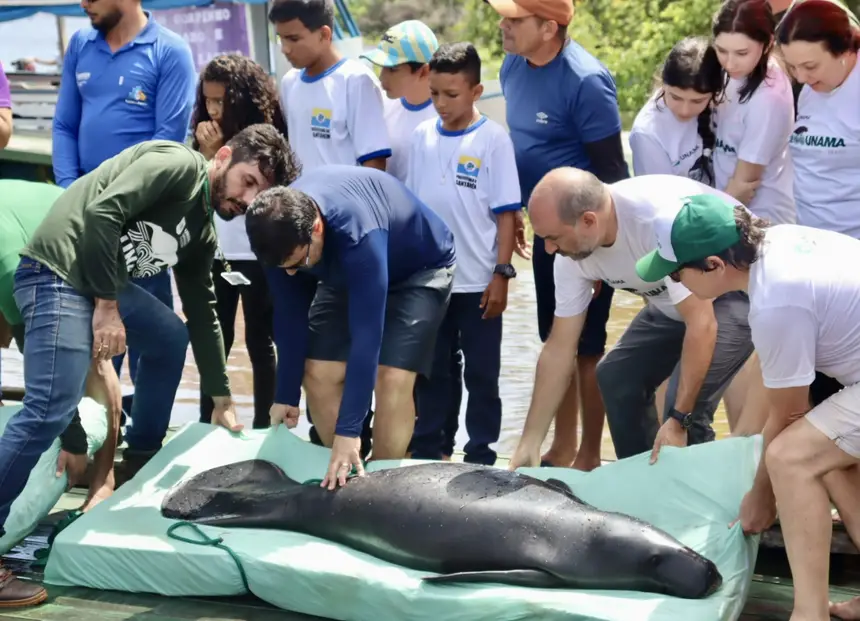
Conservation - Since its inception, the Amazon Manatee Project has rescued over 150 animals, playing an essential role in the conservation of a species threatened with extinction and of great ecological, cultural, and economic importance to the Amazon region.
This is the third release carried out by the project, which had its first release of rehabilitated animals in March 2019, the second in 2022, and the third this year. “Today, we are carrying out another release of these animals. It is always good to remember that this is a step-by-step process,” explained Jairo Moura, veterinarian at ZooUnama. According to him, everything starts with the rescue of the calves, found orphaned, injured, or weakened, which are taken to the Unama zoo to begin the recovery process.
After this initial stage, the animals undergo a period of readjustment in a floating base, where they learn to live in conditions closer to their natural environment. Only after this process are they considered fit for reintegration into nature.
“The only goal of this process is the conservation of the manatee, an important animal for the ecological balance of the Amazon,” concluded the veterinarian.
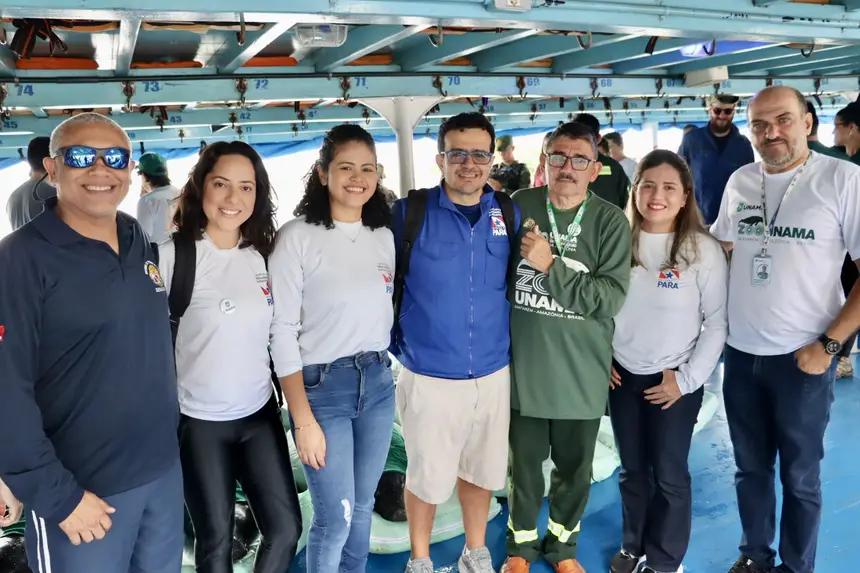
Bill - The Government of Pará submitted a bill to the Legislative Assembly (Alepa) that declares the Amazonian manatee as a natural heritage of the State. The ongoing proposal aims to expand the legal support for the conservation practices that have been carried out.
“Recognizing the manatee as natural heritage is a symbolic and strategic gesture. This provides greater backing for the measures that have already been adopted and drives new public policies aimed at protecting the species in Pará,” said the deputy secretary.



